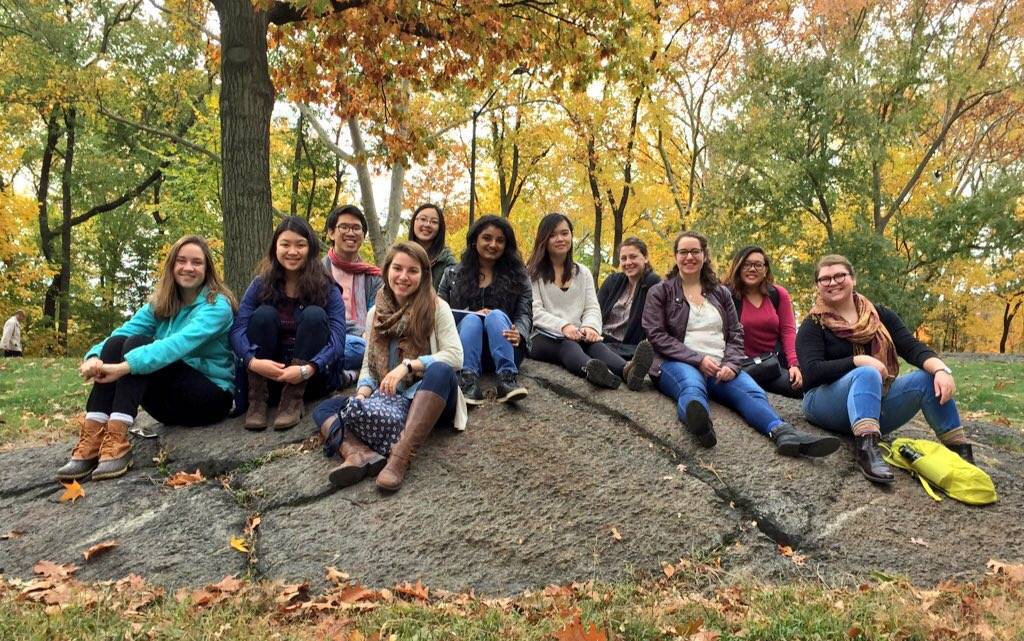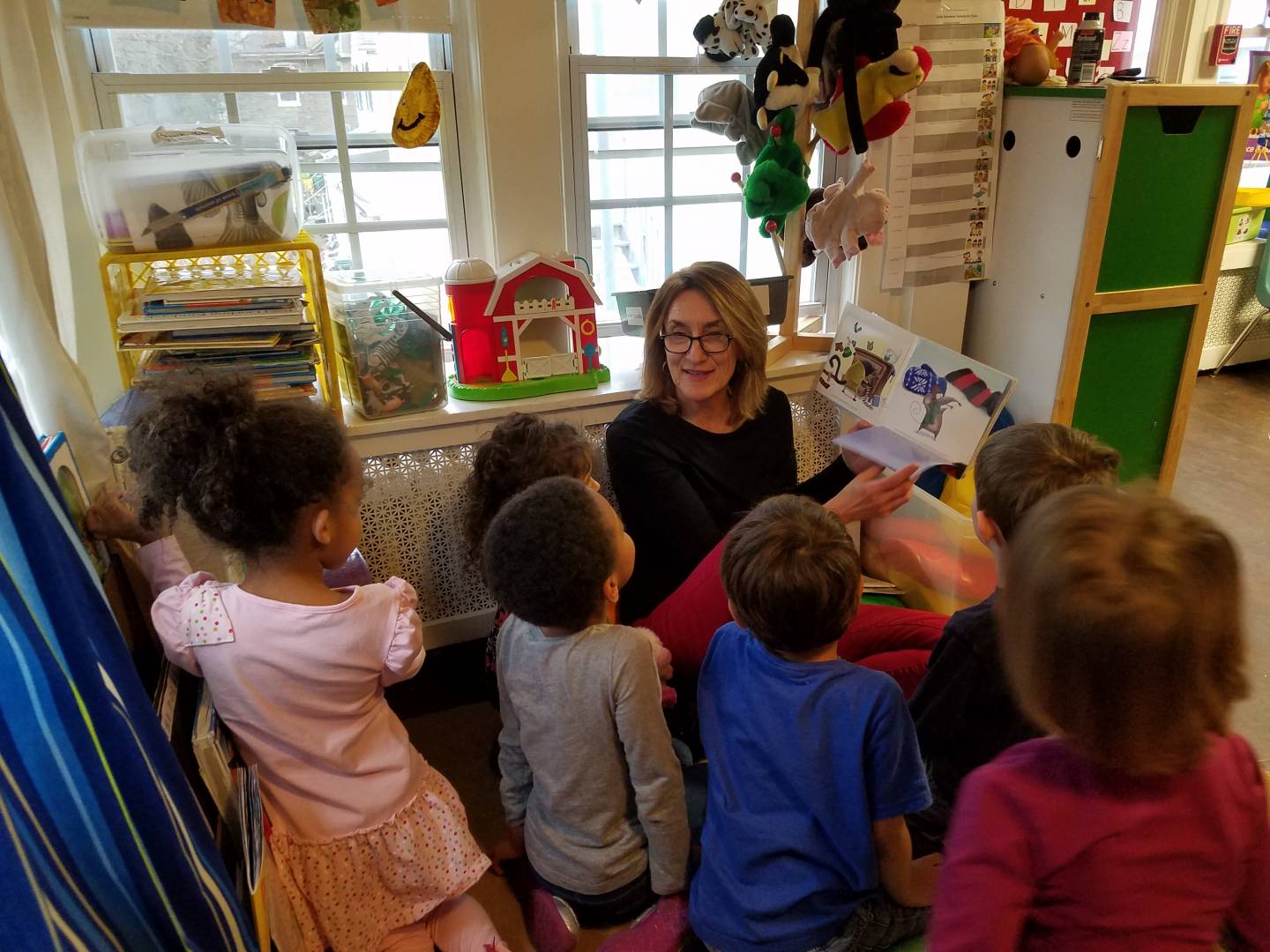
Overview
Service and civic engagement are central to what it means to be a Princetonian, as reflected in the University's informal motto, "Princeton in the nation's service and the service of humanity." Various elements of the University's mission — educating students, discovering new knowledge and developing students' character — have a common end goal, to improve the community and world around us.
Our efforts to serve the public good are evident through direct activities such as food drives and tutoring, but they're also woven through courses and research, from studying languages to research about climate change. Students learn about how to contribute to society during their time on campus, faculty serve the public through their scholarship and alumni go on to lives of leadership and engagement.
Learning to Serve
Pace Center for Civic Engagement

From students' first days on campus for Orientation to the wistful days before graduation, Princeton's Pace Center for Civic Engagement seeks to teach students why and how to be engaged in meaningful, sustained service. Service activities are surrounded by discussions addressing the underlying policy issues, meetings with community groups, training on how to assess the impact of their work, and opportunities for reflecting on service.
Advocacy and Activism
In addition, dozens of events each week — workshops, lectures, lunch talks and more — offer students opportunities to learn about issues and engagement. Campus centers such as the Fields Center for Equality and Cultural Understanding and Women's Center regularly host speakers who share their experiences in working to build a more just society.
Academics & Service
Princeton’s academic curriculum — including the general education requirements for undergraduates, such as laboratory science and ethical thought — provides students with a broad base of knowledge in fields from literature to genetics, and critical thinking tools that give them the ability to evaluate ideas and issues in their careers and as global citizens.

Some courses have a hands-on component to engage students in service. The Program for Community-Engaged Scholarship helps connect local nonprofit groups with faculty ranging from engineering to sociology, and students can enroll in courses to develop research projects, collect and analyze data, and share their results and conclusions with organizations and agencies that can make use of the information. Working with nonprofits and government agencies, students majoring in the in the Princeton School of Public and International Affairs must serve on a policy task force to research a policy challenge and present findings to relevant agencies.
If a student becomes passionate about an issue, the senior thesis is one opportunity to delve deeply into the topic. Recent senior theses have covered topics including sustainable construction with bamboo, understanding language development in infants, and reducing the impact of social media on body image.
Engaging in Service Opportunities

After a morning meeting, students on a Breakout Princeton trip relax in Central Park. The group spent a week in New York City meeting with organizations involved in the feminism movement.
Even before college starts, undergraduates can apply to participate in Princeton's Novogratz Bridge Year Program, a tuition-free program in which incoming freshmen defer their first year of college to engage in service abroad. A number of programs for undergraduate and graduate students are organized through the Pace Center for Civic Engagement, including Community Action, an orientation program centered around service; Breakout Princeton, weeklong service trips during school breaks; Community House, which focuses on education for local Princeton families; and the Student Volunteers Council, which coordinates more than 30 regular projects ranging from college counseling to firefighting. Students in the Keller Center's Tiger Challenge work in small teams to address societal issues like affordable housing and adolescent mental.
In addition, nearly every organization on campus — including residential colleges, eating clubs, athletic teams, faith-based groups — arranges service activities throughout the year. Students also have opportunities to develop and seek funding for new projects through initiatives such as the Bogle Fellows in Civic Service and Projects for Peace.
Internships
The Princeton Internships in Civic Service program, an alumni initiative established by the Class of 1969, matches students with alumni and nonprofit organizations for paid summer internships.
The Center for Career Development and the International Internship Program help identify internships that suit students' skills, values and potential careers. All careers offer the opportunity to serve the common good, directly or indirectly, and these offices offer advising to help you find an opportunity that will be fulfilling and will help you decide on a career path.
Every Princeton undergraduate will have the opportunity to participate in a paid service internship over the summer through the Learning and Education through Service (LENS) initiative.
Employee Engagement

In addition to supporting Princeton's academic mission, faculty and staff can give back to the local community through a number of annual programs the University coordinates, including a United Way campaign; food and toy drives around the holidays; and a clothing drive for adults re-entering the workforce and in need of business attire. The Office of Community and Regional Affairs also collects and shares information on local volunteer opportunities for staff, such as serving meals, providing transportation for seniors, dog walking and training at a local shelter, and maintaining hiking trails.
Lifelong Engagement

Savannah Hampton chose to do her first Silver Dollar Salute — a time-honored tradition in which a brand new second lieutenant hands a silver dollar to the first officer who salutes them — with her grandfather, Air Force Master Sergeant Bob Stone.
We hope that all students leave Princeton more service-minded than when they arrived, and that civic engagement has become a central part of their lives, whether they choose to volunteer with groups in their local communities or choose careers in service.
Some Princetonians choose to embark on postgraduate fellowships, many supported by alumni groups, that match young alumni with nonprofit organizations. Such programs include the Princeton AlumniCorps and Princeton in Africa.
Many alumni are leading lives of service. For example, Wendy Kopp, a member of the Class of 1989, founded Teach For America. Mark Milley, a 1980 graduate, is chief of staff of the U.S. Army.
Alumni can also engage in service through opportunities at Princeton. Service activities are planned each year at Reunions and at alumni conferences. To keep the cycle in motion, alumni can reach out to the University to share their expertise with students on campus, and they can host students in their communities and organizations around the world.